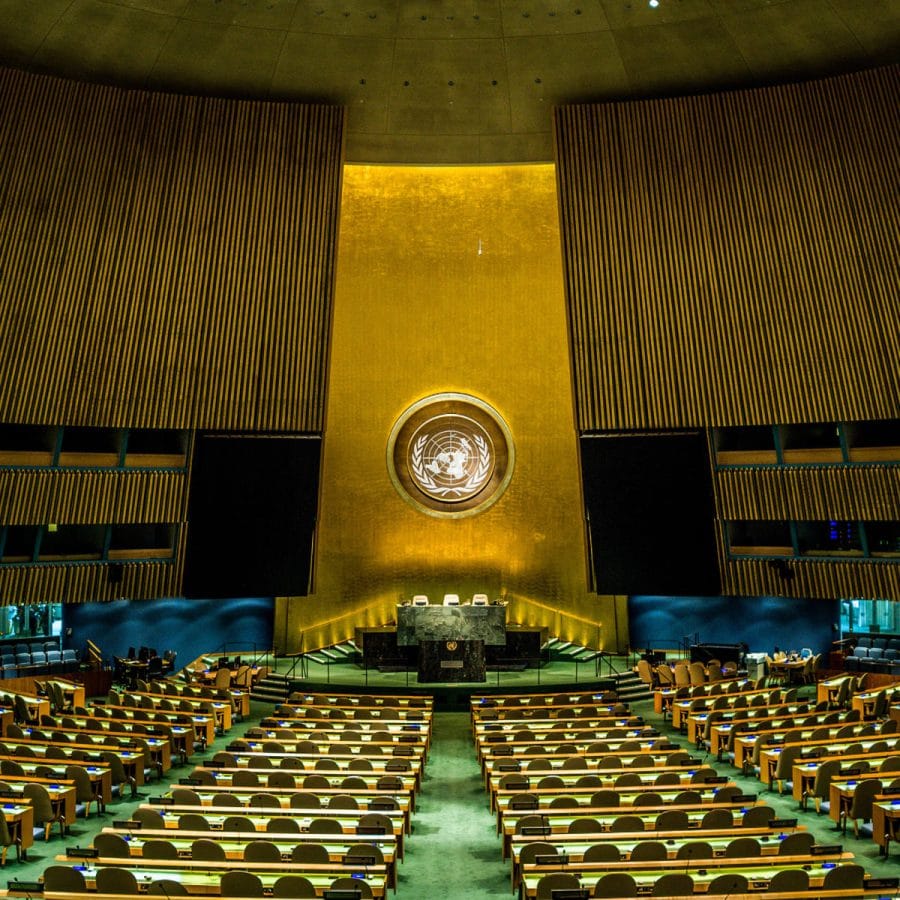On Wednesday, the United Nations honoured 129 military, police, and civilian people from 44 nations who died while serving in peacekeeping missions in 2020, including two Pakistani peacekeepers.
Given the current coronavirus crisis, the event was held virtually.
The ceremony, which was presided over by Secretary-General Antonio Guterres, commemorated the annual International Day of UN Peacekeepers, during which the Dag Hammarskjöld Medal was presented posthumously to peacekeepers who had made the ultimate sacrifice for the sake of peace in the previous year.
Ambassador Munir Akram, Pakistan’s Permanent Representative to the United Nations, accepted the awards on behalf of the families of the two Pakistani peacekeepers who died in the Congo — Sepoy Muhammad Azhar Aziz of the United Nations Organization Stabilization Mission in the Democratic Republic of the Congo (MONUSCO) and Imtiaz Hussain of the United Nations Multidimensional Force in the Democratic Republic of the Congo (MINUSCA) (MINUSCA).
“I feel deeply honoured and proud on receiving these awards on behalf of two Pakistani peacekeepers who lost their lives in the service of the United Nations during 2020,” Ambassador Akram said.
“Through their ultimate sacrifice, the late Imtiaz Hussain and Sepoy Azhar Aziz upheld the longstanding tradition of honour, courage, and dedication of Pakistani peacekeepers,” he maintained.
“Their singular contribution also manifests Pakistan’s unwavering commitment to international peace and stability.
“We salute these brave sons of Pakistan, and commit to keeping their legacy,” Ambassador Akram added.
According to the United Nations, 157 Pakistani troops have died while serving under the UN banner throughout the years.
Pakistan is the UN’s sixth-largest contributor of uniformed personnel, with over 4,700 military and police personnel currently deployed to UN peacekeeping missions in Abyei, the Central African Republic, Cyprus, the Democratic Republic of the Congo, Mali, Somalia, Sudan, South Sudan, and Western Sahara.
During the event, the Secretary-General also presented Major Steplyne Buyaki Nyaboga, a Kenyan military officer who served in the African Union-United Nations Hybrid Operation in Darfur, with the ‘2020 Military Gender Advocate of the Year Award’ (UNAMID).
Created in 2016, the Award “recognizes the dedication and effort of an individual peacekeeper in promoting the principles of UN Security Resolution 1325 on women, peace, and security.”
Earlier, the UN Secretary-General placed a wreath to commemorate the more than 4,000 UN troops who have died since 1948.
The secretary-general spoke at the sombre event about the UN troops’ “immense” difficulties and risks, saying they work hard every day to safeguard some of the world’s most vulnerable people while confronting the simultaneous risks of violence and a worldwide epidemic.
“Despite COVID-19, across all our missions, peacekeepers have not only been adapting to continue to deliver their core tasks, but they are also assisting national and community efforts to fight the virus,” Guterres said.
“I am proud of the work they have done.”
The theme for this year’s observance is “The road to a lasting peace: Leveraging the power of youth for peace and security.”
“From CAR to DRC to Lebanon, our peacekeepers work with youth to reduce violence and sustain peace, including through Disarmament, Demobilisation and Reintegration, and Community violence reduction programmes,” the secretary-general said.
The International Day of United Nations Peacekeepers was established by the General Assembly in 2002, to pay tribute to all men and women serving in peacekeeping, and to honour the memory of those who have lost their lives in the cause of peace.
In memory of the day in 1948 when the UN’s first peacekeeping mission, the UN Truce Supervision Organization (UNTSO), started operations in Palestine, the General Assembly declared May 29 as International Day of UN Peacekeepers.
More than one million women and men have served in 72 UN peacekeeping missions since then, personally influencing millions of people and saving countless lives. UN Peacekeeping now has around 89,000 military, police, and civilian troops deployed throughout 12 missions.










